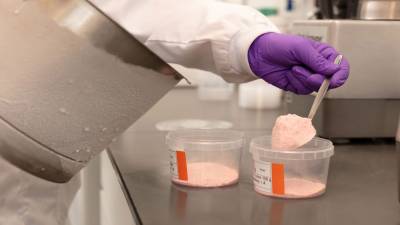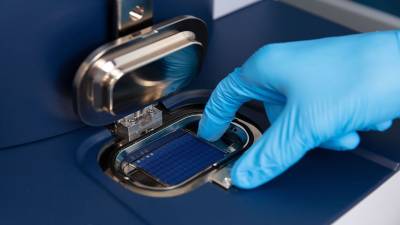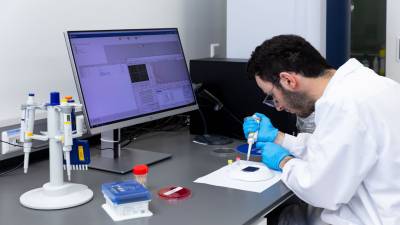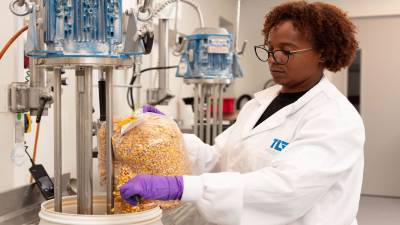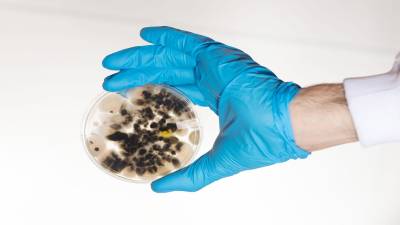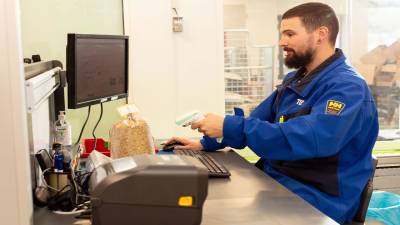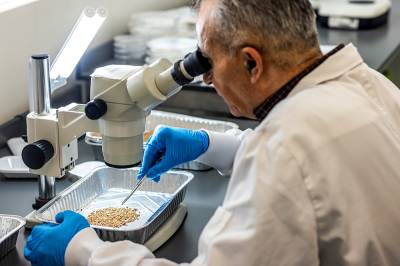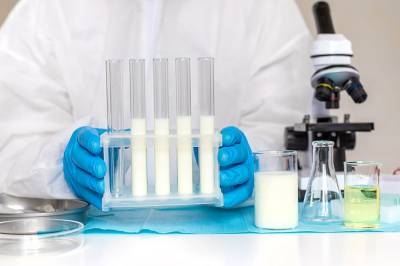How we measure what matters
Why laboratory data starts with trust
From sample to significance
You could say that at TLR we think in numbers: micrograms, detection limits, PPMs. But behind those numbers lies something bigger: certainty. Certainty that a food product is safe. That an export shipment can cross the border. That you, as a QA manager, buyer or product specialist, can rely on data that is correct.
And that starts with samples. They arrive daily: sacks of maize, bottles of oil, jars of baby food, returned feed, pallets of herbs. Every sample tells a story. Sometimes it's a routine check. Sometimes an urgent request due to a potential blockage. Sometimes a reanalysis because somewhere in the chain doubt arose. What do all these samples have in common? They deserve care and precision.
Precision is our standard
That care doesn't start in the lab. It begins at reception: following the correct protocol code, scanning the label, assessing the sample condition. Then the work of our analysts begins. People trained to make precision the standard. People who know how to determine Aflatoxin M1 and round to the correct number of decimal places, how to perform PCR without false negatives, and how to ensure a sample truly represents the correct batch.
Certus Logic Protocol as analytical backbone
At TLR we don't work with isolated data, but with meaningful connections. The Certus Logic Protocol supports us in this. This protocol forms the analytical foundation for everything we do. It links measurements to product specifications, customer standards, legal limits and historical results. Every result is automatically checked for consistency, completeness and relevance. This creates a supply chain-oriented approach in which deviations are not only detected, but also directly lead to traceable follow-up.
For you as a client, this means you receive data already linked to the context in which you operate. Not just numbers, but substantiated results that fit within your HACCP plan, export file or recall analysis. This makes it possible to act faster, communicate more effectively and make better informed decisions.
Accreditation as a basis, flexibility in execution
Everything we do starts from ISO/IEC 17025 accreditation. Analysis certificates must stand up legally, whether in audits, incident investigations or product claims. In our sector, a misplaced comma is not a small detail but the difference between release or blockage - between trust or a product recall.
At the same time, not every activity falls within the accredited scope. Some analyses are carried out on request, using validated but non-accredited methods. This calls for clear agreements, transparent reporting and careful interpretation.
Thinking along instead of waiting
We see how your role is becoming more demanding. The supply chain demands proof, customers require substantiation, audits require traceability. That's why we aim to be more than just a lab. We think along on monitoring strategies, support trend analyses, and help translate measurement results into customer-specific requirements.
Sometimes that means calling on a Friday afternoon because a certificate is missing. Sometimes it means hours of calculating carry-over percentages. Sometimes it means taking a critical look at your product specification. It's all part of the job. Because good laboratory data is only valuable if you can act on it - if it strengthens your work.
Where measurement starts with trust
At TLR, it's about measuring what matters. Not only in grams, milligrams or percentages. But in trust. In quality. In partnership.
Meld je aan voor de laatste tips en adviezen dat je gelijk in de praktijk kunt brengen.

